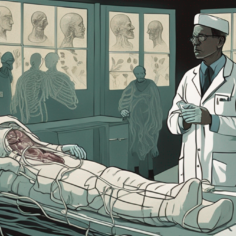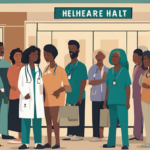
Introduction
Emergency medicine, a specialized arena of medical practice, is a beacon of hope for patients facing life-threatening conditions. This article delves into the pivotal role of emergency physicians, insights into life on the frontlines, and the impact of their relentless service on our healthcare system.
Emergency Medicine: The Core of Crisis Management
Often coined as unsung heroes, emergency physicians bridge the gap between life and certain death. Their role requires quick decision-making skills, substantive medical knowledge, and an unyielding commitment to humanity.
Area of Specialization
Emergency Medicine calls for expertise in multiple areas of health science due to its extensive range. From trauma injuries to cardiac arrests, emergency physicians encounter and treat all types of unexpected health crises. Their specialized training also covers aspects of pediatric emergency, disaster medicine, and toxicology.
(Read Also: Emergency Medicine: The Life-and-Death Drama on the Frontlines Every Day)
Challenges on the Frontlines
Life in emergency medicine is action-packed and challenging. Stakes are always high, but so is the satisfaction derived from saving lives. However, alongside the rewards come added pressures on mental and physical well-being. Physicians often face occupational hazards such as stress, fatigue, and significantly increased risk of burnout.
Emergency Medicine: Recent Developments
Recent years have witnessed commendable advancements in emergency medicine, particularly in rapid diagnostics, telemedical emergency care, and improved systems for triage.
Revolutionizing Diagnostics
Point-of-care ultrasound (POCUS) is one such groundbreaking advancement. POCUS aids in expedited diagnosis and management of life-threatening diseases, reducing the door-to-treatment time.
Telemedical Emergency Services
Telemedicine has significantly influenced emergency services by providing immediate, life-saving advice remotely, crucial in rural or hard-to-reach areas.
(Read Also: The Future of Telemedicine: Exploring Its Advancements and Unprecedented Benefits)
Ensuring a Positive Future for Emergency Medicine
Despite progress, controversies remain in emergency medicine, particularly around wait times, understaffing, and physician burnout. Addressing these requires concerted efforts, including organizational strategies aimed at optimal staffing, shift scheduling, and burnout prevention.
Policies and Strategies
Policies that promote safe work conditions, manageable workloads, and strategies that improve the blend of work-life activities could foster a healthier culture.
Tackling the Controversies
Untangling the existing debates requires a shift from problem-focused to solution-oriented approaches. This means collective efforts from policymakers, healthcare organizations, and medical professionals themselves.
Conclusion
To ensure our future is in safe hands, we must acknowledge and appreciate the critical role of emergency medicine and the tireless physicians who embody the frontline warriors in our battle against disease and injury.
Last modified: 12 December 2023


















